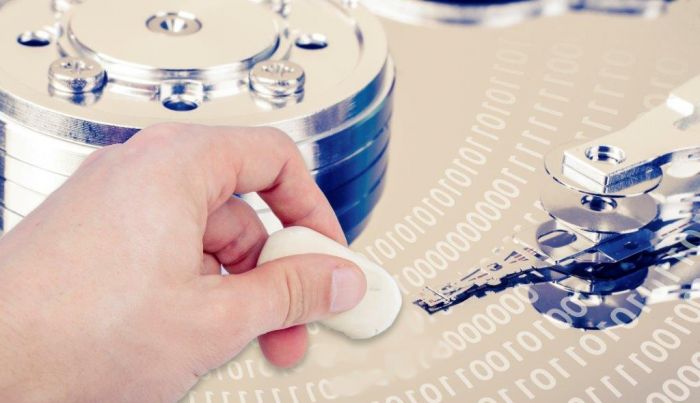Hard drives are very sensitive, so assessing and fixing them can be a very delicate process, and it can only be done by highly trained professionals. According to a study done by Carnegie Mellon University, about 5% of all hard disks will fail within the first year-and-a-half. Surprised? Whether you are or not, you want to be ready if your hard drive calls it quits. When a hard drive fails, there are one or two things that could be the problem. The first is a logical failure, and the second is a physical failure.
Logical failures can be due to wrongly organized data, important register data that has been deleted, or some sort of corruption from a virus. Any of combination of these can cause a major or minor logical error with the data, but not with the physical parts of the hard drive itself.
Physical failures can be electronic for mechanical. Usually it is both in very close succession. Because hard disks are run on a very precise, accurate, and immaculate set of hardware, anything out of the ordinary probably means it is toast. Mechanical failure occurs when the high RPM parts wear down, heat up, or clash together. Electronic failures usually occur when the printed circuit board assembly is exposed to too much heat. When it heats up, it causes the well-organized pattern of read and write heads on the drive to be jumbled and corrupts all the “ones” and “zeros.”
Whether a hard drive failure is physical or logical, the evaluation process can be very fragile. While a quick evaluation of what is wrong may be easy, finding a long-term solution isn’t. For professionals who have worked on thousands of hard drives finding the problem isn’t hard. We’ve seen the same thing hundreds of times. Finding out the initial problem could take less than five minutes; the longer process is finding how to fix the problem. The first time the drive spins up may be the last time it does, so the best solution is to start imaging it before anything else happens. If the hardware fails for the final time, at lease part of the disk’s data has safely been removed. When a hard drive is unstable, a permanent loss of records could be inevitable.
If a hard drive is unable to spin up at all, it requires a little bit more of a hands-on approach. If the mechanical parts are completely shot, they can go through a bit of ‘hard drive surgery.’ Because of the delicacy of the operation, the location has to be cleaner than a hospital! If the hard drive surgery is successful, then the disk can be imaged. Even if the hard drive seems to be in good working condition, it is better to trash it and start with a new one with no problems. Usually, the data can be restored completely, just as it was before the drive failure, but sometimes recoverable files are disorganized and come back missing all the meta data.
So, if you have a bad hard drive that you have sent in, be patient. It’s in good hands and it is better not to rush the process. Let the experts do their work. They’ll do their best to give your files back better than when they got them.
